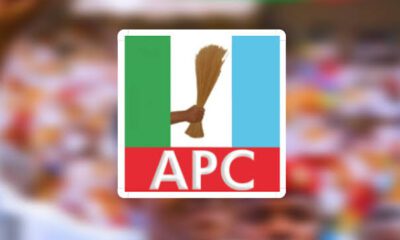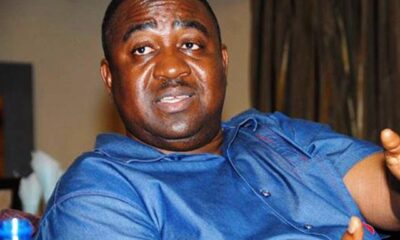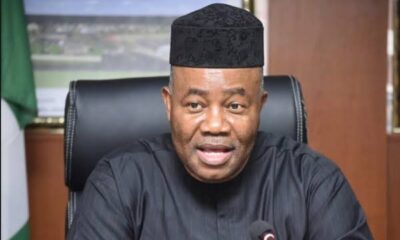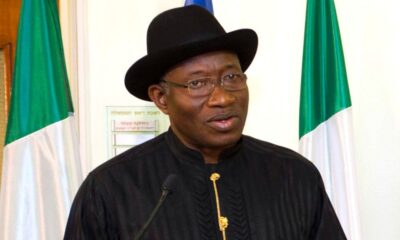Top Story
State Police: Nigeria immature for implementation, will be abused by Governors — IGP
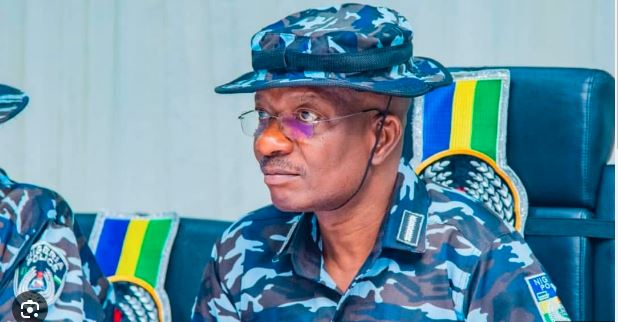
…As Fmr President Jonathan, Abdusalam harp on independence of Police, increased funding
By Adeyanju Esther
The Inspector General of Police (IGP), Kayode Egbetokun has stated that Nigeria is immature to have a state controlled Police force.
The IGP was responding to recent calls advocating for the creation of State Police to tackle the rising insecurity and banditry across the country.
Recall that some state Governors had previously embarked on creating security services but have been unsuccessful on making them legally recognised, prominent of which is the Amotekun Corps set up by South-West Governors.
Speaking during a national dialogue on state police organised by the House of Representatives in Abuja, with the theme: ‘Pathways to Peace: Reimagining Policing in Nigeria,’ Egbetokun, represented by Ben Okolo, an assistant inspector-general of police, said Nigeria is not ready for a decentralised police force.
He said, “It is the submission of the leadership of the Nigeria police force that Nigeria is yet to mature for the establishment of state-controlled police.”
The IGP listed some of the challenges as inadequate manpower, inadequate operational equipment such as vehicles, arms and ammunition, communication equipment, drones, aerial surveillance cameras, security surveillance helicopters, armoured vehicles, and inadequate training of personnel.
He added that state police would create a conflict of jurisdiction and be open to abuse by state governors.
However, Minister of Police Affairs, Ibrahim Gaidam, countered Egbetokun’s stance with advocacy for state police. Gaidam argued that decentralising the police force was imperative to effectively combat the rising tide of insecurity. He stressed the need for tailored, localized approaches to policing to address the diverse security challenges facing different regions of Nigeria.
However, concerns were raised about the potential of such a merger as proposed by Egbetokun on the autonomy and efficacy of the respective organizations.
Also speaking, Former President of Nigeria, Goodwick Jonathan declared that the issue of state police is non-negotiable.
Jonathan noted that for state police to be implemented, the Independent National Electoral Commission (INEC) must be rejigged.
“So if we are talking about state police, we must also rejig INEC, and the police must not be used against or to the advantage of any political party.
“The issue of voting, the polling booths of INEC, and the use of police during elections has to be reviewed by the National Assembly.
“So the National Assembly needs to look into all these. These are the areas that we have to concentrate on. The issue of the need for states to have their own police is not negotiable. There is no way we can continue this kidnapping that is going on in this country,” Jonathan said.
Former Head of State, General Abdulsalam Abubakar (retd) also rechoed the opinions of Former President Jonathan.
Abdulsalam opined that the success of the state police is hinged on adequate funding.
He said that in order to make peace and security in any nation, the governance must be transparent, must have honesty, accountability and all that it takes to make citizens comfortable in order to go on with their daily business to earn their legitimate earnings.
He added that the citizens of any country have the responsibility and that responsibility is to ensure the maintenance of peace and order and this can be done by upholding the Constitution, laws and orders, and regulations.
“Not only that, citizens should not vandalise any property or establishment provided by the various governments. It is our responsibility to be each other’s keepers and ensure that there is equity and the maintenance of issues provided by the various governments,” Abubakar said.
He further called that the traditional rulers should be carried along in achieving that state police.
“Indeed, our royal fathers have a lot of responsibilities in ensuring the maintenance of peace and order. As a young child growing up in a rural community, we see the role of these royal fathers in the various arms ‘of their governments,’ where when a stranger enters a village, within hours, the village head knows about that stranger and through their means of communication, the Emir is aware,” the ex-Head of State said.
“I think, as much as we are talking of establishing State Police, we should also look into the role vis-a-vis our royal fathers.
“President Jonathan has mentioned the relationship of what I was to say to politicians vis-a-vis the local police if we decide to have them. It is absolutely necessary for the politicians as much as possible to avoid exerting influence on the ways the police are going to operate if at all we agree to have the police.
“Although President Jonathan has already concluded that it’s the operational standards that we are going to discuss. I think we must really give it a thought to have to operationalise these police if we decide to have them,” AbdulSalam said.
In the same vein, Vice President, Kashim Shettima pledged the commitment of the President Bola Ahmed Tinubu’s administration to reform the Police Force and enhance security to achieve a safer and more secured Nigeria for the well being of citizens.
According to him, Tinubu believes that the path to effective security is through adaptive reforms catering to Nigeria’s diverse circumstances.
This, he said, can only be achieved by carefully reviewing various options in the Nigerian context. He said this inclusive approach will guide the country to have a policing system that is most effective and respectful.
“Your interest in the issue of state policing underscores your commitment to the security and well-being of citizens. This initiative is not only timely but also speaks to the commitment of the legislative arm for addressing critical national issues through inclusive and collaborative governance,” Shettima said.
“This government under the leadership of President Bola Ahmed Tinubu is actively aware of the complex security issues that abound in places.
“As such, we are continually developing and reminding ourselves of methods to address these challenges effectively. Today’s dialogue is critical to these efforts of providing a platform for robust discussion and innovative thinking regarding the reform of our policing structure. He deserves commendation for his openness and proactive stance towards the idea of reforming and decentralising the police force.
“It gladdens my heart that the 10th House of Representatives under the Speaker Tajudeen Abbas has keyed into this initiative. The involvement of the legislature in executive reforms ensure continuity and synergy. Let us use this opportunity to engage with the seriousness it demands.
“The President is committed to listening to your recommendations and insights invariably to share in the policies that would lead us to a more secure and good society.”
He further explained that the concept of state policing is not merely a policy but a potential revolution of the law enforcement framework which offers the possibility of catering to the diverse means of the nation’s communities.
“As the Vice President, I am deeply interested in the outcomes of today’s discussions. The insights would inform our administration’s approach to supporting legislation and enhancing the capacity of our police force but also strengthen the bonds of trust between the law enforcement and the public.”
“In our deliberations, let us consider the implications of state policing from multiple perspectives. We must invite (stakeholders)…to respond on time to emergencies, adapt to specific local challenges and increase accountability. At the same time we must address concerns related to the standardisation of training, oversight and the safeguarding of our civil liberties.
“We should also see it as an opportunity to listen, understand and focus on the solutions. It is essential that this forum is not the end but the beginning of an ongoing conversation on the issue of police and security sector reform in our country.
“The nature of the stakeholders gathered here today including security experts, religious leaders, civil society representatives, underscores the comprehensive approach to ensure that diverse perspectives are integrated into the policy making process.
“As we continue today’s sessions I urge participants to engage with openness, honesty and insight. The value of this gathering lies in the ability to harness advice and constructive reasoning and suggestions from all quarters. Your contributions today are not merely academic but theoretical discussions of the transformative reforms we aspire to implement.”
He also reiterated the President’s readiness to support and implement meaningful resolutions that would emerge from the dialogue.
Top Story
NDIC increases deposit insurance coverage for financial institutions


…New review ensures safety of depositors’ funds — MD
…Warn depositors against patronising unregistered operators
By Matthew Denis, Abuja
The Nigeria Deposit Insurance Commission (NDIC) has announced an increase in maximum deposit insurance coverage for financial institutions in the country.
The new review was announced at a press briefing held at the NDIC headquarters in Abuja.
The Managing Director of the NDIC, Mr. Bello Hassan revealed that the increase of the maximum deposit insurance coverage from N500,000 to N5,000,000, would provide full coverage of 98.98percent of the total depositors compared with the current cover of 89.20 percent.
The MD said, “Findings indicate that high percentages of depositors ranging from 89.20 percent to 99.99 percent were fully insured under the maximum deposit insurance coverage levels across different bank categories (DMBs, PMBs, MFBs, and PSBs), meanwhile, a substantial portion of the total value of deposits, remain uninsured.
“We need to stress at this juncture that high levels of uninsured deposits pose a risk of bank runs. Indeed, the International Association of Deposit Insurers (IADI) Brief No. 9 of 2023 that examined the recent bank failures in the United States of America and Switzerland, concluded that, high levels of uninsured deposits in insured institutions might increase the likelihood of bank runs with dire impact on the stability of the financial system,” he explained.
Mr. Bello stressed “that based on these considerations, and in line with our commitment to enhancing depositors’ protection, public confidence, financial inclusion, and stability of the financial system, I am pleased to announce that the NDIC’s Interim Management Committee (IMC), during its 18th meeting held on April 24th and 25th, approved an 3 increase in the maximum deposit insurance coverage levels for all licensed deposit-taking financial institutions with immediate effect.
“The adjustments are as follows: i. Deposit Money Banks (DMBs) The increase of the maximum deposit insurance coverage from N500,000 to N5,000,000, would provide full coverage of 98.98 percent of the total depositors compared with the current cover of 89.20 percent.
“In terms of the value of deposit covered, the revised coverage would increase the value of deposits covered by deposit insurance to 25.37 percent compared with the current cover of 6.31 percent of total value of deposits.”
The NDIC boss explained that at the Microfinance Banks (MFBs) the increase of the maximum deposit insurance coverage from N200,000 to N2,000,000, would provide full coverage of 99.27 percent of the total depositors compared with the current level of 98.76 percent and would increase the value of deposits covered by deposit insurance to 34.43 percent compared with 14.38 percent of total value of deposit, currently covered.
He revealed that Primary Mortgage Banks (PMBs) The increase of the maximum deposit insurance coverage from N500,000 to N2,000,000 would provide full coverage of 99.34 percent of the total depositors compared with the current 97.98 percent and would increase the value of deposits covered by deposit insurance to 21.04 percent compared with 10.77 percent of total value of deposit, currently covered.
”While the Payment Service Banks (PSBs) the increase of the maximum deposit insurance coverage from N500,000 to N2,000,000 would provide full coverage of 99.98 percent of the total number of depositors and would increase the value of deposits covered by deposit insurance to 43.10percent of the total value deposits from the current cover of 40.60 percent.”
“Subscribers of Mobile Money Operators: The increase of the maximum Pass-through deposit insurance coverage from N500,000 to N5,000,000 per subscriber per MMO as the applicable coverage level for depositors of DMBs. 4 7.0 I must emphasise that, the revised deposit insurance coverage has balanced the NDIC’s goals of deposit protection and financial system stability with incentives for depositors to practice market discipline and prevent banks from unnecessary risk-taking and moral hazard. Consideration was given to ensure that the coverage was limited but adequate enough to protect a large number of depositors and credible enough to prevent the destabilizing effect of bank runs,” he said.
Speaking further, Bello said the adoption of the revised maximum deposit insurance coverage is supported by the Corporation’s current funding, represented by the balances in the various Deposit Insurance Funds (DIFs), expected annual premium collection, enhanced supervision that would reduce the likelihood of bank failures, effective bank resolution frameworks and other funding arrangements provided by the NDIC Act No. 33 of 2023.
He buttressed further by noting, “I would like to reaffirm the NDIC’s unwavering commitment to protecting depositors and contributing to the stability of the financial system. These adjustments to the maximum deposit insurance coverage reflect our dedication to adapt and evolve in response to the changing landscape of the financial industry, and we remain steadfast in our pursuit of a secure and resilient banking environment for all.”
The MD also advised depositors to patronise only licensed and registered financial operators by the Central Bank and NDIC to avoid falling prey to mouth-watering Fintech operators who deceive customers with a lot of incentives and high interest rates.
Top Story
Minimum wage: Governors await committee decision, assure workers of increased wages


The 36 states Governors of Nigerian states have stated that they are awaiting the decision of the 37-member tripartite committee inaugurated on the National Minimum Wage before taking an action on minimium wage.
Recall that the Federal Government had earlier set up a committee to look into the demands of the Organised Labour regarding measures to cushion the effects of the removal of fuel subsidy.
Edo State has since go on to increase her minimium wage to N70,000 while other Governors have initiated wage awards for workers in their respective states.
In a statement signed yesterday by the Nigeria Governors Forum (NGF) Chairman and Governor of Kwara State, AbdulRahman AbdulRazaq, at the end of the virtual meeting held Wednesday night, the state executives disclosed that they were committed to looking into issues bordering on the remuneration of state judicial officers and the infrastructure of the courts.
The 36 state governors under the aegis of the NGF said that they celebrate with workers across the country for their dedication to service and patience, as all have worked with the Federal Government, labour, the organised private sector, and relevant stakeholders in arriving at an implementable national minimum wage.
According to the governors, while they acknowledge various initiatives adopted recently by way of wage awards and partial wage adjustments, it was imperative to state that the 37-member tripartite committee inaugurated on the National Minimum Wage was still in consultation and yet to conclude its work, just as they said that they would remain committed to the process and promise that better wages would be the invariable outcome of their ongoing negotiations.
The statement read, “We, members of the Nigeria Governors’ Forum (NGF), at our meeting held today, deliberated on various issues of national importance.
“The Forum celebrates with workers across the country their dedication to service and patience as we work with the Federal Government, labour, organised private sector, and relevant stakeholders to arrive at an implementable national minimum wage.
“While we acknowledge various initiatives adopted recently by way of wage awards and partial wage adjustments, it is imperative to state that the 37-member tripartite committee inaugurated on the National Minimum Wage is still in consultation and yet to conclude its work.
“As members of the committee, we are reviewing our individual fiscal space as state governments and the consequential impact of various recommendations to arrive at an improved minimum wage we can pay sustainably. We remain committed to the process and promise that better wages will be the invariable outcome of ongoing negotiations.
“Members received the outgoing Country Director, Mr. Shubham Chadhuri, and the incoming Country Director, Mr. Ndiame Diop, of the World Bank, to discuss the Bank’s vision for transitioning. Mr. Chadhuri appreciated the Forum for the strategic role it continues to play in coordinating collective action for developmental change.
“He applauded the non-partisan character of the Forum, the professionalism of its Secretariat, and state governments’ commitment to mutual accountability mechanisms such as performance-based financing interventions by the Bank. Members expressed confidence in the choice of Mr. Diop to lead the collaboration going forward and look forward to a sustained and deepened relationship.
“The Forum discussed the revised National Policy on Justice (2024–2028) from the just concluded National Summit on Justice on 24th & 25th April 2024. Members agreed to consider the submissions from the summit as may concern their individual states, including recommended legal amendments, administrative improvements, and policies to strengthen the justice sector. Also, the Forum committed to looking into issues bordering on remuneration of state judicial officers and the infrastructure of the courts.”
“The Forum received a presentation from the National Human Capital Development (HCD) Programme—Core Working Group Secretariat, led by Ms. Rukaiya El-Rufai and Dr. Ahmad Abdulwahab. Both highlighted the marginal progress made by states and its contribution to Nigeria’s Human Development Index (HDI), especially across health, nutrition, education, and labour force participation.
“Having reviewed the previous program design and national strategy, a revised governance and implementation roadmap was proposed to scale up impact and ensure sustainability. Members pledged to support the effective domestication of proposed revisions to the national HCD strategy.
“Members received a briefing from Mrs. Oyinda Adedokun, Program Manager, State Action on Business Enabling Reforms (SABER) Federal Ministry of Finance Programme Coordination Unit.
“The briefing highlighted states’ performance in implementing advocated reforms relating to land administration; regulatory framework for private investment in fiber optic infrastructure, services provided by investment promotion agencies and public-private partnership units; efficiency and transparency of government-to-business services, under the World Bank financed program.
“The Forum commiserated with the Governors of Rivers State, H.E. Siminalayi Fubara, and Ogun State, H.E. Prince Dapo Abiodun, over the petrol tanker explosion and gas explosion that occurred on April 26th and 27th, 2024, respectively. Members called for proper maintenance of trucks, especially those fitted to convey Compressed Natural Gas (CNG), and recommended appropriate training for truck drivers.
“On enforcement of regulations, members resolved to engage relevant Ministries, Departments, & Agencies (MDAs) in order to align the activities of federal regulators with the operations of officials at the sub-national level.”
Top Story
Fidelity Bank records 120.1% growth in PBT to N39.5bn in Q1, 2024
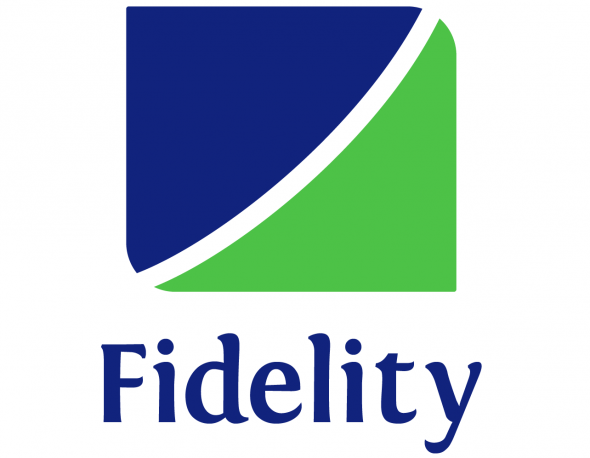

In line with its upward growth trajectory, leading financial institution, Fidelity Bank Plc, has posted an impressive 120.1 percent growth in Profit Before Tax from N17.9bn at the end of Q1 2023 to N39.5bn for Q1 2024. This was made known in the Bank’s unaudited financial statements released on the issuer portal of the Nigerian Exchange (NGX) on Tuesday, 30 April 2024.
According to the statement, Gross Earnings increased by 89.9 percent yoy to N192.1bn from N101.1bn in Q1 2023. The increase was led by a combination of interest income (90.7 percent yoy) and non-interest income (84.0 percent yoy). Growth in interest income was primarily spurred by a higher yield environment and strong earning assets base, while the increase in non-interest income was led by double-digit growth in account maintenance charges, FX-related income, trade, banking services, and remittances, supported by increased customer transactions.
Commenting on the results, Nneka Onyeali-Ikpe, MD/CEO, Fidelity Bank Plc stated, “We are pleased to report another quarter of strong financial performance driven by our strategic focus on customer-centricity, digital innovation and operational excellence. Despite the challenging macroeconomic environment, we remained resilient and agile, delivering double-digit growth on key income lines while advancing our business sustainability agenda.”
In the period under review, the bank grew Net interest income grew by 89.5 percent yoy to N99.6bn from N52.6bn in Q1 2023, driven by interest and similar income as the yield on financial instruments improved to 14.7 percent from 10.1 percent in Q1 2023 (2023FY: 11.6 percent). In line with the steady rise in interest rates through the year, average funding cost increased by 80bps ytd to 5.2 percent. However, NIM came in at 8.8 percent compared to 8.1 percent in 2023FY, as increased yield on earning assets surpassed funding cost to 15.1 percent from 13.3 percent in Q1 2023 (2023FY: 13.5 percent).
Similarly, Total Deposits increased by 17.2 percent ytd to N4.7tn from N4.0tn in 2023FY, driven by double-digit growth across all deposit types (demand, savings and term). Net Loans and Advances increased by 21.2 percent to N3.7tn from N3.1tn in 2023FY.
“Beginning the year on this inspiring note reaffirms our strategy of helping individuals to grow, inspiring businesses to thrive and empowering economies to prosper. We are committed to our guidance as we build a more resilient business franchise with a well-diversified earnings base in 2024,” explained Onyeali-Ikpe.
Ranked as one of the best banks in Nigeria, Fidelity Bank is a full-fledged customer commercial bank with over 8.5 million customers serviced across its 251 business offices in Nigeria and the United Kingdom as well as on digital banking channels.
-
capital market2 years ago
Rt.briscoe, FBNH, Others halts negative performance of stock market
-
Finance3 months ago
Court orders Sen. Victor Umeh to repay N136m bank debt to AMCON
-



 Abuja Update2 months ago
Abuja Update2 months agoUNDP, FG partnership needed to achieve inclusion, equity- Minister
-
Abuja Update1 month ago
Banks drive stock market performance with N147bn gain
-



 Business2 weeks ago
Business2 weeks agoTingo Group unveils Tingo Electric, Tingo Cola drink at Lagos launch
-



 Health2 weeks ago
Health2 weeks agoCapacity training will reduce migration of health workers- NPHCDA
-
News4 months ago
Oil thieves sponsoring malicious media campaign against Navy – Spokesman
-



 Infotech1 month ago
Infotech1 month agoWorld Backup Day: NITDA urges Nigerians to ensure backup of data

